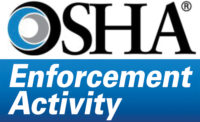Two organizations that are working together to develop information to help mitigate hazardous exposures in brick kilns have won recognition from the International Occupational Hygiene Association (IOHA).
The Brick Kiln Committee of Workplace Health Without Borders (WHWB) and Global Fairness Initiative (GFI) will be the first recipients of the Collaboration Award given by the International Occupational Hygiene Association (IOHA). This new Award honors collaboration between an occupational/industrial hygiene organization and other countries or organizations to share ideas and technologies to improve the caliber of occupational/industrial hygiene worldwide. The two organizations were nominated by the American Industrial Hygiene Association (AIHA).
Collecting data to protect worker health
WHWB and GFI partnered to establish a Centre at Kathmandu University in Nepal to collect data on sampling, analysis, medical information, extent of child labor, and hazardous exposures in brick kilns.
Through this international database, researchers around the world will better coordinate information on health and safety issues in brick kilns. The Centre will provide valuable insights into working conditions and child labor in brick kilns, effective exposure measurement techniques, and solutions for controlling exposure and protecting worker health. The video is introduced by Dr. William S. Carter, the WHWB Brick Kiln Committee Chair whose dedication and perseverance ensured the success of the project.
International conference coming up
The IOHA Collaboration Award will be presented on September 26 at the 11th IOHA International Scientific Conference (IOHA 2018), hosted by AIHA, in Washington, DC. Collecting the Award and speaking about the project on behalf of their respective organizations will be Dr. Seshananda Sanjel (WHWB) and Homraj Acharya (GFI), both of whom have been key participants in the project and enthusiastic collaborators.
Homraj Acharya is the Country Director for Nepal at GFI. He is an international development professional with significant work experience in non-governmental organizations, government and private sector entities. A trainer, facilitator and coach, he has experience working in challenging environments and change-resistant communities and cultural ecosystems. He has built vertical and horizontal linkages across diverse stakeholder groups while establishing the Better Brick Nepal program.
Dr. Seshenanda Sanjel is an Assistant Professor at Kathmandu University School of Medical Sciences, Dhulikel, Community Medicine in Nepal. With a PhD in Environmental Science – Occupational Health from Kathmandu University, he has over 16 years of experience in public health, including epidemiology and occupational health. Dr. Sanjel has been working for years to improve the health of brick kiln workers in Nepal. He is a member of WHWB and an active participant in the WHWB Brick Kiln Committee, the latter having been formed to work with partners to assess exposure of brick kiln workers and develop ways to protect their health. Dr. Sanjel has also been a part of the Better Brick Nepal movement.



